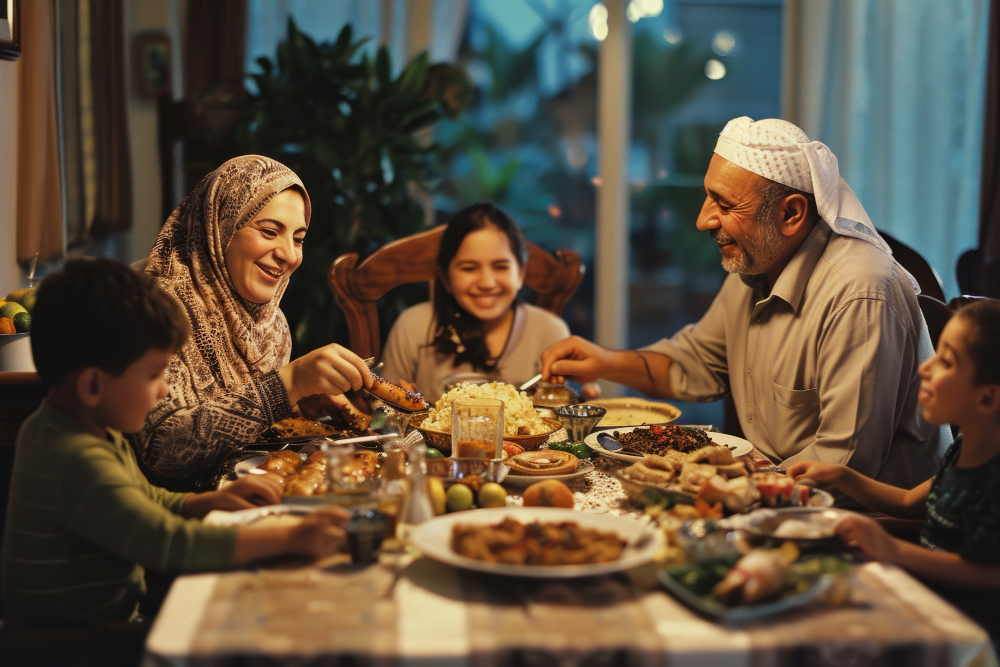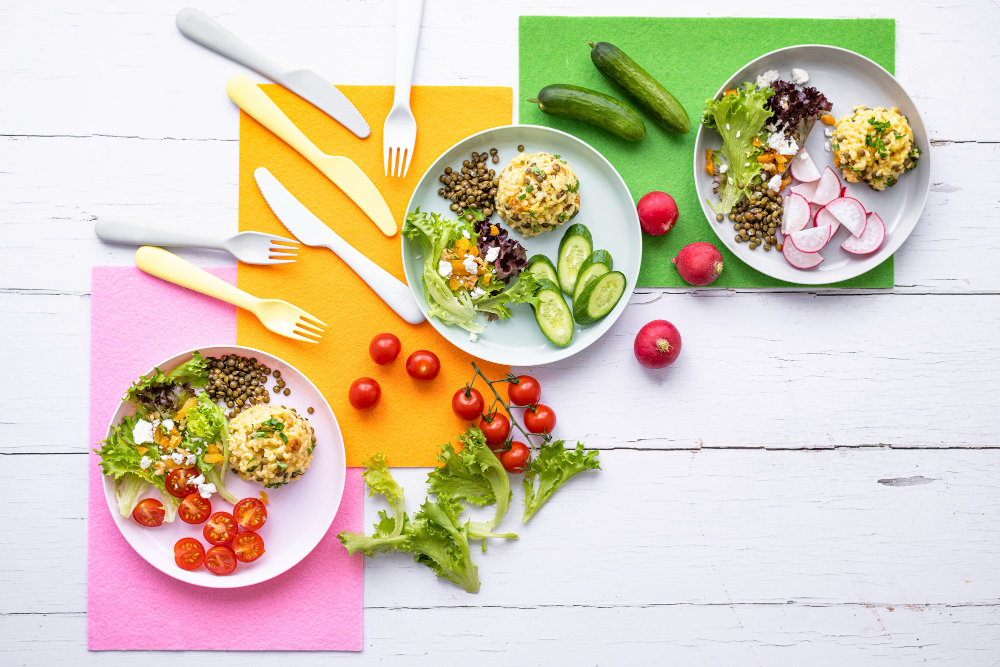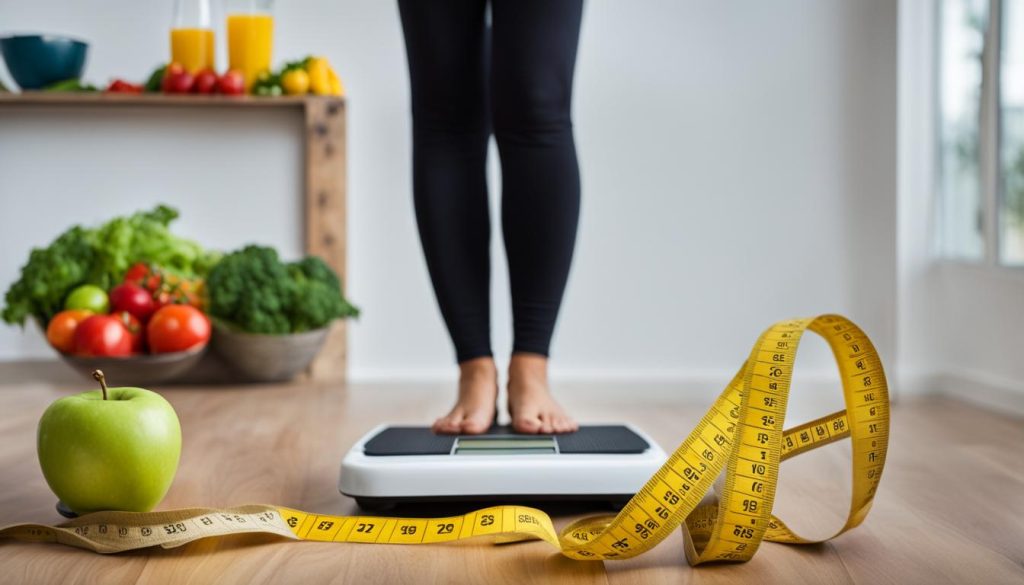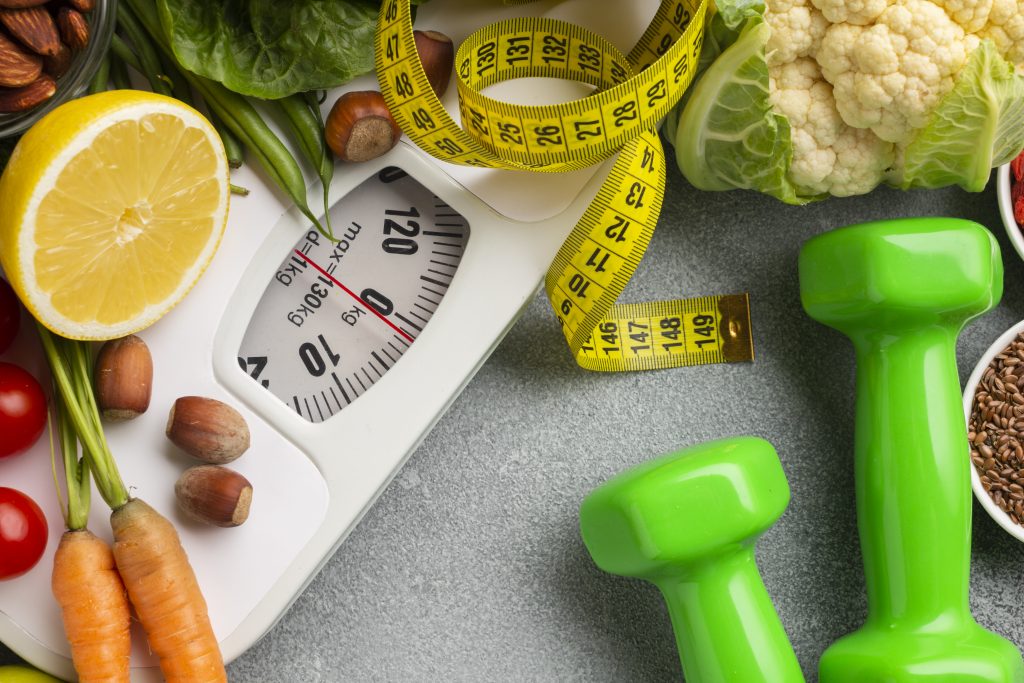Ramadan is a time of spiritual reflection, self-improvement, and heightened devotion and worship. For Muslims around the world, it is also a time of fasting from sunrise to sunset. However, when it comes time to break the fast at Iftar, there is often a temptation to overindulge, which can lead to discomfort, weight gain, and digestive issues. In this article, we will explore some tips on how to avoid overeating during iftar and maintain a healthy balance during Ramadan 2024.
How can I eat less at Iftar?
Start with Dates and Water: Begin your iftar with 2-3 dates and a glass of water. Dates are a traditional way to break the fast and provide a quick source of energy. Water will help fill your stomach and prevent you from overeating later in the meal.
Eat Slowly and Mindfully: Chew your food slowly and savor each bite. Eating slowly gives your body time to register fullness, which can help prevent overeating. Put down your utensils between bites and focus on the flavors and textures of your food.
Portion Control: Use smaller plates and bowls to help control portion sizes. Start with smaller portions of food and only take more if you are still hungry after finishing your first serving.
Include Protein and Fiber: Protein and fiber-rich foods can help keep you feeling full longer. Include lean proteins such as chicken, fish, or legumes, and fiber-rich foods like fruits, vegetables, and whole grains in your iftar meal.
Limit Sugary and Fried Foods: While it’s okay to indulge in sweets occasionally, try to limit sugary and fried foods during iftar. These foods can lead to rapid spikes and crashes in blood sugar levels, which can increase hunger and lead to overeating.
Listen to Your Body: Pay attention to your body’s hunger and fullness cues. Stop eating when you feel satisfied, even if there is food left on your plate.
How to control hunger during Ramadan?
Suhoor: Eat a nutritious suhoor meal before starting your fast. Include complex carbohydrates, protein, and healthy fats to help keep you feeling full throughout the day.
- Stay Hydrated: Drink plenty of water between iftar and suhoor to prevent dehydration, which can sometimes be mistaken for hunger. Avoid caffeinated and sugary drinks, as they can increase thirst.
- Avoid Skipping Meals: While it may seem tempting to skip meals to save calories, this can lead to increased hunger and overeating later in the day. Try to eat regular meals at suhoor and iftar to maintain a stable blood sugar level.
- Stay Busy: Keep yourself occupied during the fasting hours to distract yourself from feelings of hunger. Engage in activities such as reading, praying, or spending time with family and friends.
- Manage Stress: Stress can increase feelings of hunger and lead to overeating. Practice relaxation techniques such as deep breathing, meditation, or yoga to help manage stress during Ramadan.
What foods to avoid at iftar?
Highly Processed Foods: Avoid foods that are high in added sugars, unhealthy fats, and refined carbohydrates. These foods can lead to cravings and overeating.
- Sugary Drinks: Beverages such as soda, fruit juices, and energy drinks are high in sugar and can contribute to weight gain and other health issues. Opt for water, herbal tea, or fresh fruit juices instead.
- Fried Foods: Fried foods are often high in unhealthy fats and calories. Limit your intake of fried foods such as samosas, pakoras, and fried chicken during iftar.
- Sweets and Desserts: While it’s okay to enjoy sweets occasionally, try to limit your intake of sugary desserts during iftar. Opt for healthier dessert options such as fresh fruit or yogurt.
Can you eat as much as you want after iftar?
While it may be tempting to indulge in a large meal after iftar, it’s important to practice moderation and listen to your body’s hunger cues. Eating too much in one sitting can lead to discomfort, bloating, and digestive issues. Instead, focus on eating balanced meals that include a variety of nutrient-dense foods. If you find yourself consistently overeating at iftar, consider speaking with a healthcare professional or registered dietitian for personalized advice and support.
FAQs
How can I avoid feeling hungry during Ramadan?
To avoid feeling hungry during Ramadan, make sure to eat a nutritious suhoor meal before starting your fast, stay hydrated throughout the day, and avoid skipping meals.
Can I eat sweets during iftar?
While it’s okay to enjoy sweets occasionally, try to limit your intake of sugary desserts during iftar. Opt for healthier dessert options such as fresh fruit or yogurt.
Is it okay to overeat after iftar?
It’s important to practice moderation and listen to your body’s hunger cues. Eating too much in one sitting can lead to discomfort, bloating, and digestive issues. Focus on eating balanced meals and avoid overeating.
In conclusion, Ramadan is a time for spiritual reflection and self-discipline. By following these tips, you can avoid overeating during iftar and maintain a healthy balance during Ramadan 2024. Remember to eat slowly and mindfully, include protein and fiber-rich foods in your iftar meal, and listen to your body’s hunger cues. Ramadan Mubarak!








Can you be more specific about the content of your article? After reading it, I still have some doubts. Hope you can help me.
Thank you for your sharing. I am worried that I lack creative ideas. It is your article that makes me full of hope. Thank you. But, I have a question, can you help me?
Thank you for your sharing. I am worried that I lack creative ideas. It is your article that makes me full of hope. Thank you. But, I have a question, can you help me?
Thank you for your sharing. I am worried that I lack creative ideas. It is your article that makes me full of hope. Thank you. But, I have a question, can you help me?
I don’t think the title of your article matches the content lol. Just kidding, mainly because I had some doubts after reading the article. http://totem-experience.com/ivoire/
Thanks for sharing. I read many of your blog posts, cool, your blog is very good.
Thanks for sharing. I read many of your blog posts, cool, your blog is very good.
Can you be more specific about the content of your article? After reading it, I still have some doubts. Hope you can help me.